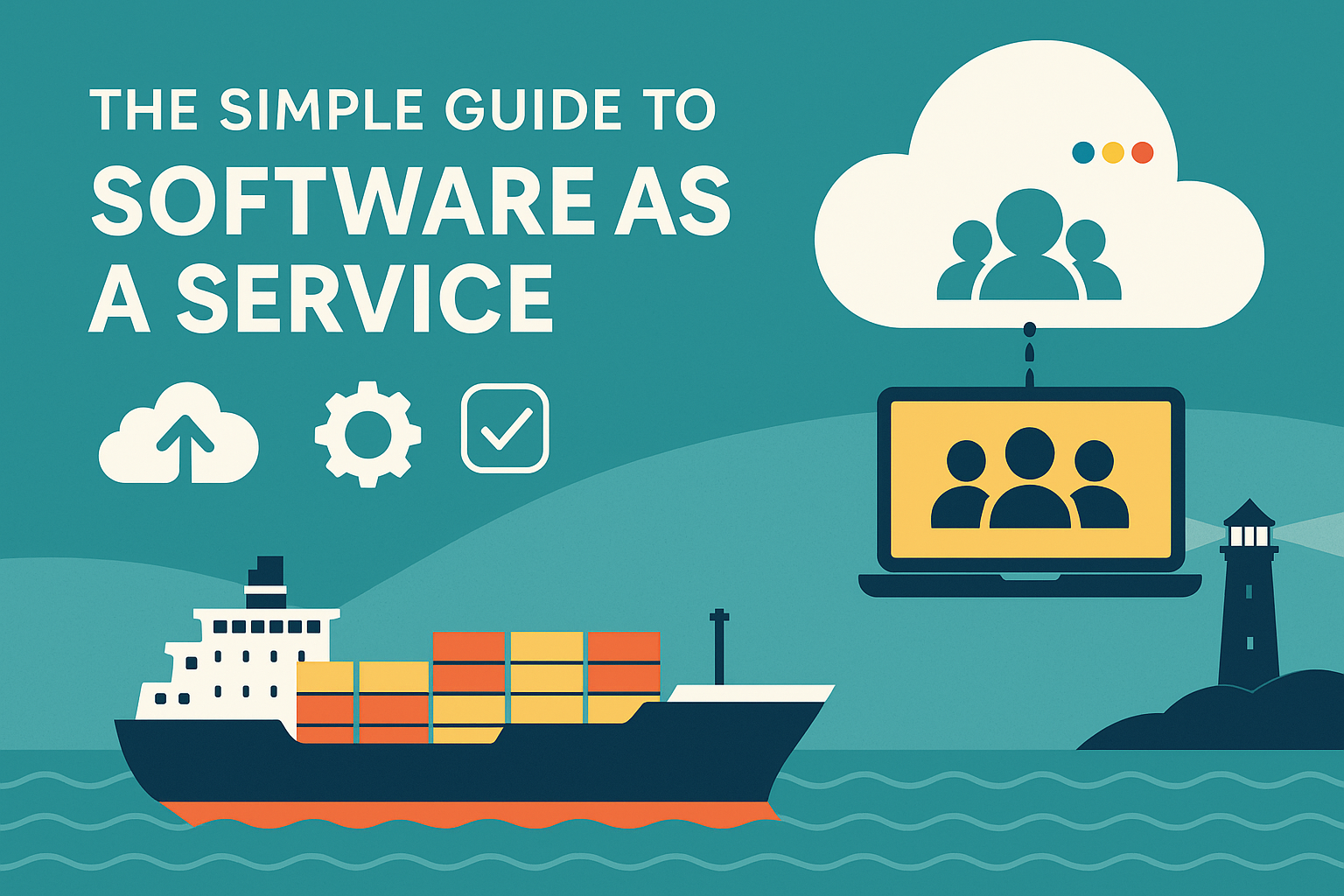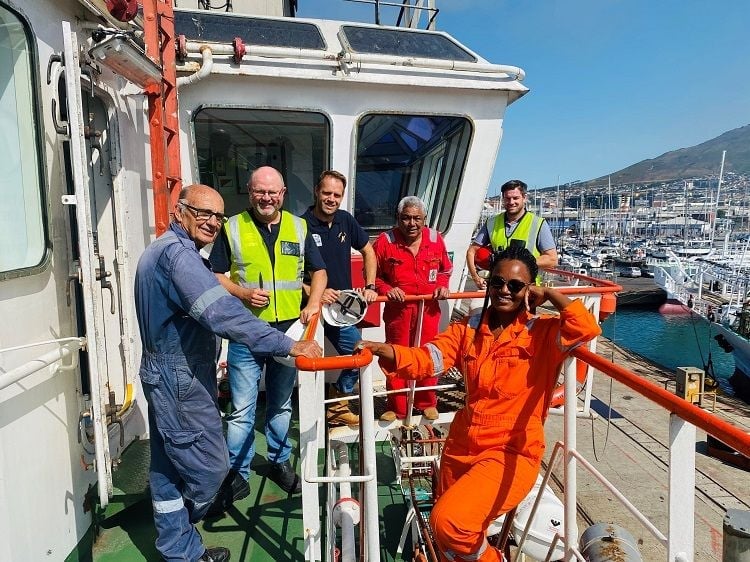What To Do if a Fake Agency is Advertising Jobs in Your Name

In the digital age, the threat of fraudulent activities has become increasingly prevalent, with fake job offers being one of the most common scams. For shipping companies, these scams can cause significant reputational damage and operational disruptions. For the victims - the seafarers themselves - they can cause financial losses and much distress.
If you discover that a third party is posing as a manning agency and offering fake seafarer jobs under your company's name, it's crucial to take immediate and comprehensive action.
In this blog post, we’re going to offer you a step-by-step guide on what your shipping company should do to address and mitigate the impact of such fraudulent activities.
What to do if you’ve been targeted by a fake manning agency
Follow these steps if you’ve come to the unpleasant realization that a bogus manning agent is offering fake seafarer jobs in your name.
Respond immediately
The moment you become aware of fake job offers being circulated under your company's name, it's vital to respond swiftly. The first step involves gathering all available information about the scam. This includes identifying the platforms where the fake job offers are being posted, the contact information being used by the scammers, and any communications that victims have received. This data will be essential for subsequent steps.
Investigate internally
Conduct an internal investigation to determine the scope of the scam. Collaborate with your HR, legal, and IT departments to understand how the fraudsters might have accessed or misused your company's information. This investigation should also assess whether any sensitive data has been compromised and ensure that your internal systems are secure.

Inform stakeholders
Inform all relevant stakeholders within your organization about the situation. This includes upper management, HR personnel, and your legal team. Clear communication ensures that everyone is aware of the issue and can contribute to a unified response strategy.
Make a public announcement
Transparency is key to maintaining trust. Issue a public statement on your company's official website and social media channels, warning potential applicants about the scam. Clearly state that your company is not affiliated with these fake job offers and provide guidelines for seafarers on how to identify legitimate job postings. Encourage victims or potential victims to report any suspicious activities directly to your company.
Report to authorities
File a report with the appropriate local and international authorities. This includes law enforcement agencies and maritime regulatory bodies such as the International Maritime Organization (IMO) and the International Labour Organization (ILO). Providing detailed information about the scam can aid these authorities in investigating and potentially prosecuting the perpetrators.
Contact affected platforms
Reach out to the platforms where the fake job offers have been posted, such as job boards, social media sites, and online forums. Request the removal of fraudulent listings and provide evidence of the scam. Most reputable platforms will act quickly to eliminate deceptive content and may also take steps to prevent similar incidents in the future.
Enhance security measures
Review and enhance your company's cybersecurity measures. Implement stronger security protocols to protect your company's data and prevent unauthorized access. Regularly update and patch your systems, and conduct security audits to identify and address potential vulnerabilities.

Educate potential applicants
Launch an educational campaign aimed at potential seafarer job seekers. Provide them with information on how to identify fake jobs and job offers and protect themselves from scams. Highlight the official channels through which your company posts job vacancies and emphasize the importance of verifying the legitimacy of job offers.
Monitor and follow-up
Continue to monitor the situation even after taking the initial actions. Keep an eye on online platforms for any new fraudulent activities and maintain open communication with authorities and affected platforms. Follow up with individuals who have reported being scammed to offer support and gather additional information that could help in the investigation.
Take legal action
Consider taking legal action against the fraudsters if feasible. This might involve pursuing civil lawsuits or working with law enforcement to bring criminal charges. Consult with your legal team to determine the best course of action based on the specifics of the case.
Review and revise policies
Finally, review and revise your company's policies and procedures to prevent future incidents. This might include implementing stricter verification processes for job postings, enhancing seafarer and employee training on fraud detection, and establishing clear protocols for responding to similar situations.
Read more: What Makes a Good Manning Agency in Maritime Recruitment?
What does the ICS say about fake manning agencies?
The International Chamber of Shipping has a useful resource called Manning Agency Guidelines which may come in useful for both genuine manning agencies and shipping companies alike.
On the subject of fraudulent or bogus operators, they state that; “The primary concern is with entities purporting to be manning agents claiming to have a relationship with a shipowner/employer, but who do not in reality and who advertise and recruit for non-existent jobs.”

They follow this by saying that; “The MLC [Maritime Labour Convention], 2006 does not have a mechanism to handle entities operating bogus and fraudulent operations, often through websites.”
The following points are a summary of the guidelines as per the ICS with regards to bogus manning agencies or other entities you have found to be advertising fake jobs using your company’s name.
- Report the case to both the police and maritime authorities
- Place a disclaimer on your company’s website
- Provide information on your website to explain your recruitment process so that seafarers know what to expect when applying for your jobs
- Refer seafarers who may have fallen victim to a scam to the International Transport Workers’ Federation’s (ITF) Recruitment Scams fact sheet
- Alert seafarers not to respond to requests for upfront payment
- Encourage seafarers to check information and make sure hyperlink addresses are genuine
- Educate seafarers on how to identify and avoid scams.
Handling seafarer jobs scams: final thoughts
Fake seafarer job scams are a serious issue that can harm your company's reputation and the individuals targeted by these frauds. By responding quickly and comprehensively, you can mitigate the impact of such scams and help protect your company's integrity.
Transparent communication, collaboration with authorities, and enhanced security measures are crucial components of an effective response strategy. Remember, the key to combating fraud is vigilance and proactive action.
Stay informed, stay prepared, and protect both your company and potential job seekers from falling victim to these deceitful schemes.

Eve Church
Eve is Martide's content writer, publishing regular posts on everything from our maritime recruitment and crew planning software to life at sea. Eve has been writing professionally for more than two decades, crafting everything from SEO-focused blog posts and website landing pages to magazine articles and corporate whitepapers.
UK

is the only site for maritime jobs



